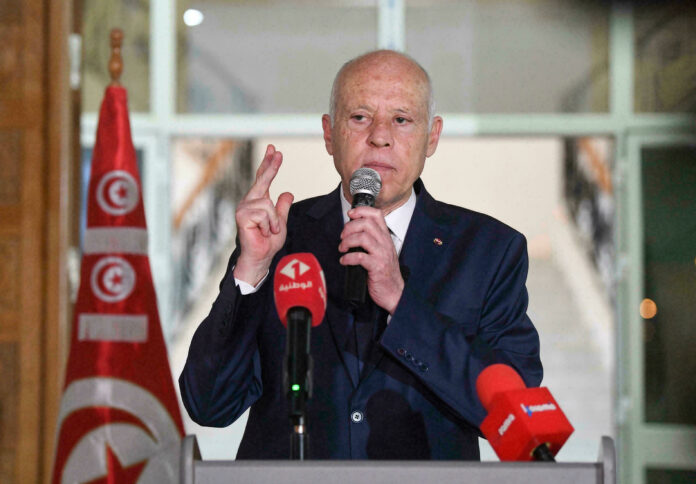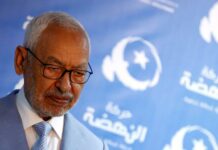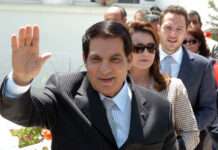The president’s announcement of changing the date of the celebration of the anniversary of the revolution from January 14 to December 17 was not an ordinary event or a mere notification in the course of normal activity.
It was rather a link in a series of an entire campaign aimed at drawing attention to the current December 17 date, and making it a pivotal point in drawing a map of the next political stage, or rather, to clarify and detail the mechanisms of governance and authority that the country will go through in the next stage of the twenty-fifth of July.
The head of state is trying to give the date of December 17 an aura of sanctity and revolutionary purity and assure everyone that it is a forgotten or neglected date: it is the date of the betrayed revolution against which the group of January 14 turned, as he said in one of his previous talks.
Obviously, the president wants this date to be a pivotal day, not in the history of the revolution and the aspirations of the revolutionaries, but in the history of his rule and his break with the old ruling categories.
The postponement of important dates, and the unjustified slowness in taking the measures that had to be taken since the early hours of the July 25 movement as well as the extension of the exceptional measures, even without presidential decrees, was de facto only, and all of them come down in the context of giving importance to the date of December 17 and preparing it to be a historic day in which important decisions are announced, and the new presidential era opens.
Accordingly, many forces began to adjust their dates on the seventeenth of this December, and many are waiting for this date.
The measures and decisions that the president will announce therein will certainly have a great impact on the conduct of the political process today and tomorrow in the history of Tunisia.
Undoubtedly, the first decision that the president will announce is the dissolution of Parliament.
The president waited for the Court of Accounts to open a loophole in the wall of the Bardo Palace, through which the parliament would automatically dissolve by dropping many lists and stripping dozens of deputies of their qualifications. However, his expectations ran into the wall of the judges, who, apparently, had closed their ranks and duly prepared for a protracted confrontation with the president. But such a confrontation would certainly not be in the interest of both sides.
Others are also waiting for the president to announce or to call for early legislative elections, which is an expected procedure, especially if the parliament is dissolved, because the country in the end, whatever the president’s precautions or objection to those who were nominated, cannot remain without an elected Legislative Council.
The Tunisian elite, especially constitutional jurists and specialists in interpreting and reading the constitution, is waiting for the president to begin on December 17 a review of the entire political system, especially in terms of its form based on the principle of the parliamentary state system which had made the Assembly of the People’s Representatives the original authority and gave the prime minister the most powers and privileges in managing the affairs of government, something that presidents of different affiliations were not comfortable with, although all of them have signed the constitution that stipulates that and all of them have blessed it and considered it the best constitution in human history.
Reforming the electoral law, dissolving the Independent Electoral Commission as well as some other constitutional bodies, reforming the media, sending committees to take care of legislation and enactment of laws pending early elections, new appointments to vacant positions, and perhaps even wide shifts in the ranks of governors, delegates, chiefs, general managers, and even state secretaries, and senior officials…. All are expected decisions and actions.
What some fear, however, is that the dispute with the judges will prompt a wide movement in their ranks, or deep changes that may reach the point of dissolving the Supreme Judicial Council, and other steps expected from the President of the Republic, who began mobilizing public opinion on the 17th December, as it will be a date for the announcement of important and fateful decisions, that is a starting point for a new era and a third republic.











